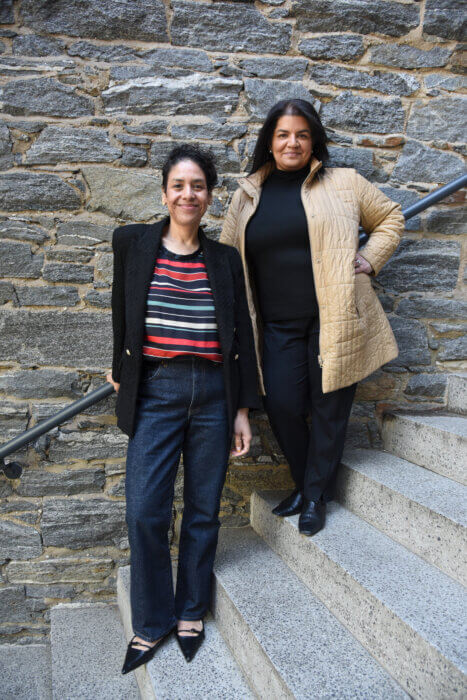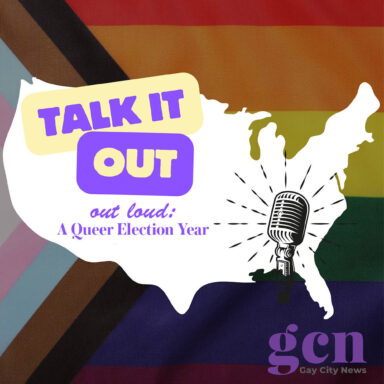Teresa Gonzalez and Prisca Salazar-Rodriguez are on a mission to empower and support New York Latinas and increase their representation in politics through Evolution Strategies, their newly- founded firm.
Focused on campaign services and stakeholder engagement, Evolution Strategies is a Latina-run, Latina-operated firm that Gonzalez and Salazar-Rodriguez founded this spring.
While they are both partners at Bolton-St. John’s, a state-wide lobbying firm, Gonzalez and Salazar-Rodriguez felt that the New York Latino community lacked a designated space that focused on uplifting Latina women’s voices in politics, both in elected office and behind the scenes.
“In New York City, Latinos make up 30% of the population,” said Salazar-Rodriguez. “You would think we would automatically represent areas where we live, but that’s not always the case.”
“We’ve watched the evolution of communities when representation wasn’t a part of the stakes,” said Gonzalez. Neither she nor Salazar-Rodriguez liked the results they saw come from that lack of representation, and Evolution Strategies seeks to put an end to that.
“We have 15 elected officials in the City Council who are Latino, the majority of them women, which is such a breath of fresh air,” said Salazar-Rodriguez. “So we want to keep that leadership and build on that, which is what we’re focused on doing.”
“One of the drivers behind starting our own firm, Evolution Strategies, was to offer up a platform for other Latinas when doing this work to find a place to land,” said Gonzalez during an interview at DUMBO House.
“You can become a part of this larger space where we can work together and help navigate through, quite frankly, unfamiliar territory for a lot of us,” said Gonzalez.
“And not just in office, but with people like us, doing this work,” continued Gonzalez. “Government relations is a really weird, funky thing. It’s a very mystifying, complex system. We need more Latinas who understand that not only in elected government, but as lobbyists, executive directors, board chairs.”
Gonzalez and Salazar-Rodriguez inevitably met through various professional networks because “the number of Latinas in government relations is small,” said Gonzalez.
“When I launched my other firm — just because I don’t need to sleep, I have another firm — there were not many Latinos doing it,” continued Gonzalez. “It was uncharted.”
Salazar-Rodriguez began her career in government as a teenager working in the Bronx Borough President’s office.
“I really quickly fell in love with the work of helping people,” she said.

While the two are both native New Yorkers of Puerto Rican heritage who have deep connections to the city and its political history, they vary on political opinions.
“Prisca is a lot more conservative, traditional,” said Gonzalez, who considers herself more left-leaning.
But they both agree whole-heartedly on the fact that New York politics needs more Latina representation.
“The one thing that we seamlessly come together on is helping Latina women represent their communities,” said Salazar-Rodriguez.
“It really is the only thing we need to have in common,” added Gonzalez.
Gonzalez noted that at a local level, women’s general representation in politics has never been higher, as well as general Latino representation.
“We have incredible representation in both New York City and the state,” said Gonzalez. “In the City Council, we have the largest representation of women in the history of the Council, mostly women of color, and certainly the Latino caucus is the largest ever.”
Gonzalez noted that the recent push of legislation promoting women’s rights and healthcare is thanks to that growing representation.
“Right now there is an incredible movement for reproductive health legislation that is unprecedented,” said Gonzalez. Maternal mortality, abortion support and universal childcare are just some of the topics New York’s female politicians have tackled since being elected.
“This kind of groundbreaking push around female health in general is really exciting, and it’s this new, female-lead Council that is doing it,” said Gonzalez.
But the two believe that representation could be even higher, especially for Latina women, and that they are the ones to foster that growth.
“Things will not change or grow if we are not more vocal and public about the need for representation,” said Gonzalez. “It is time to step up and get in the spotlight.”




















